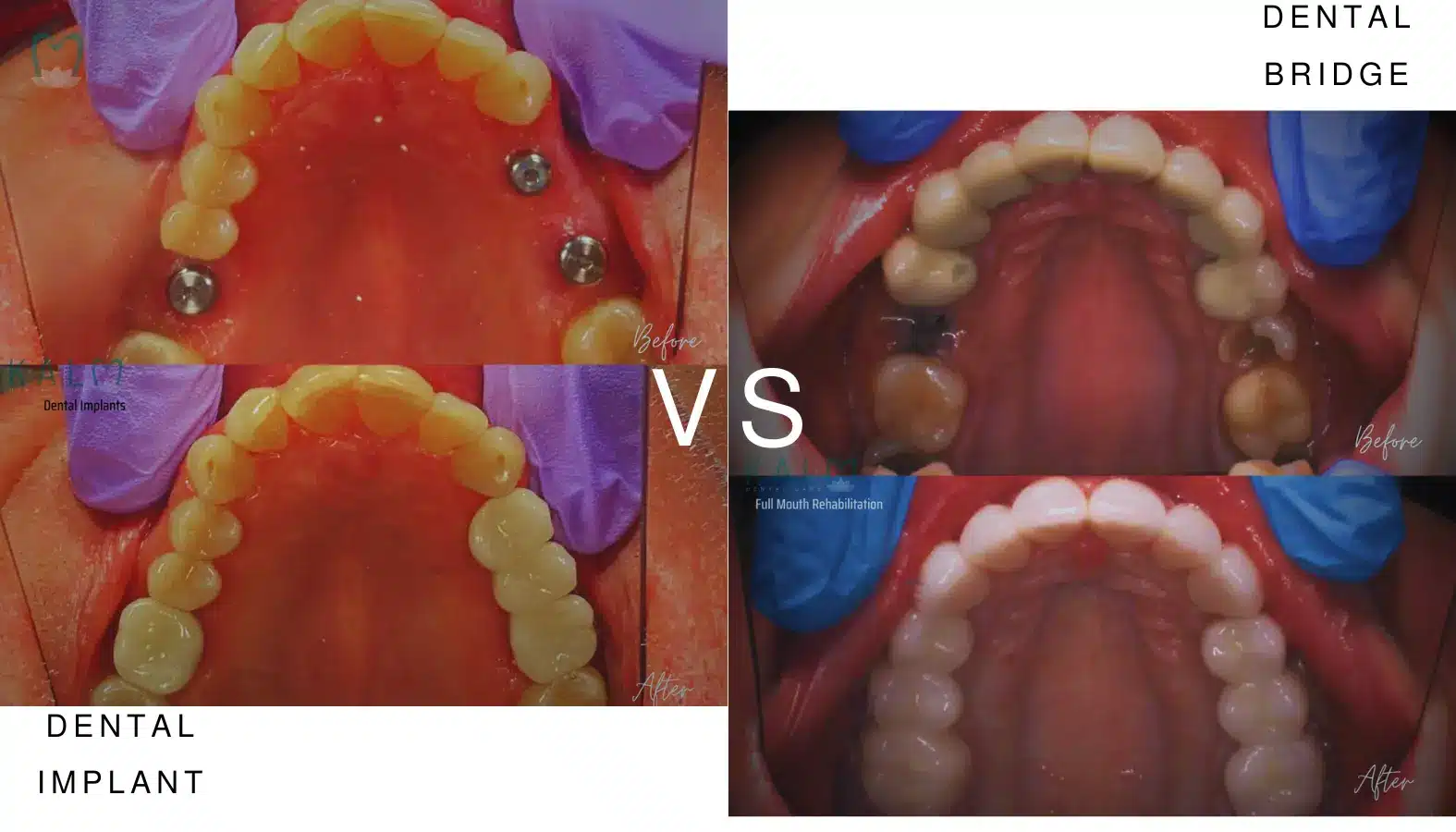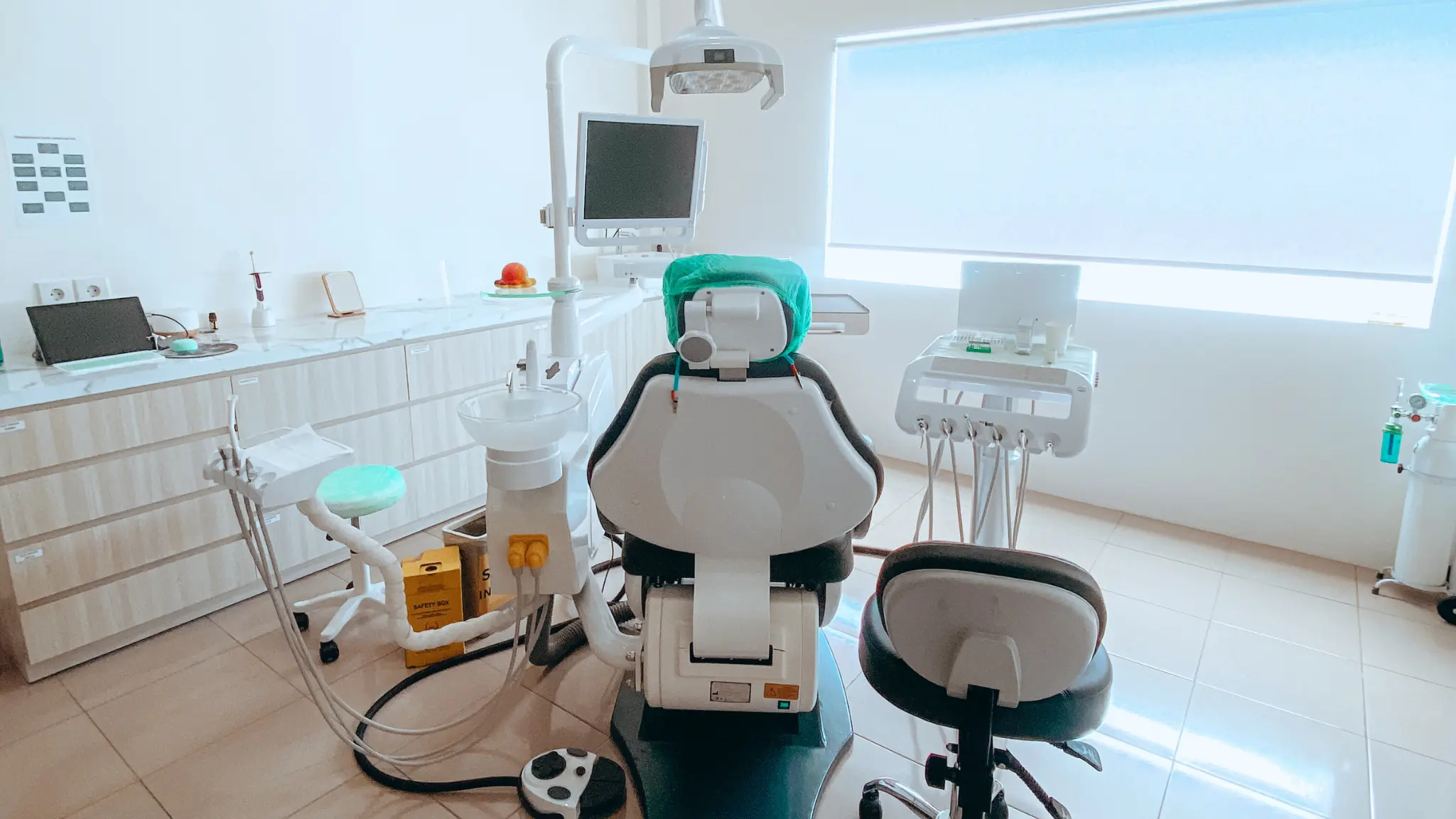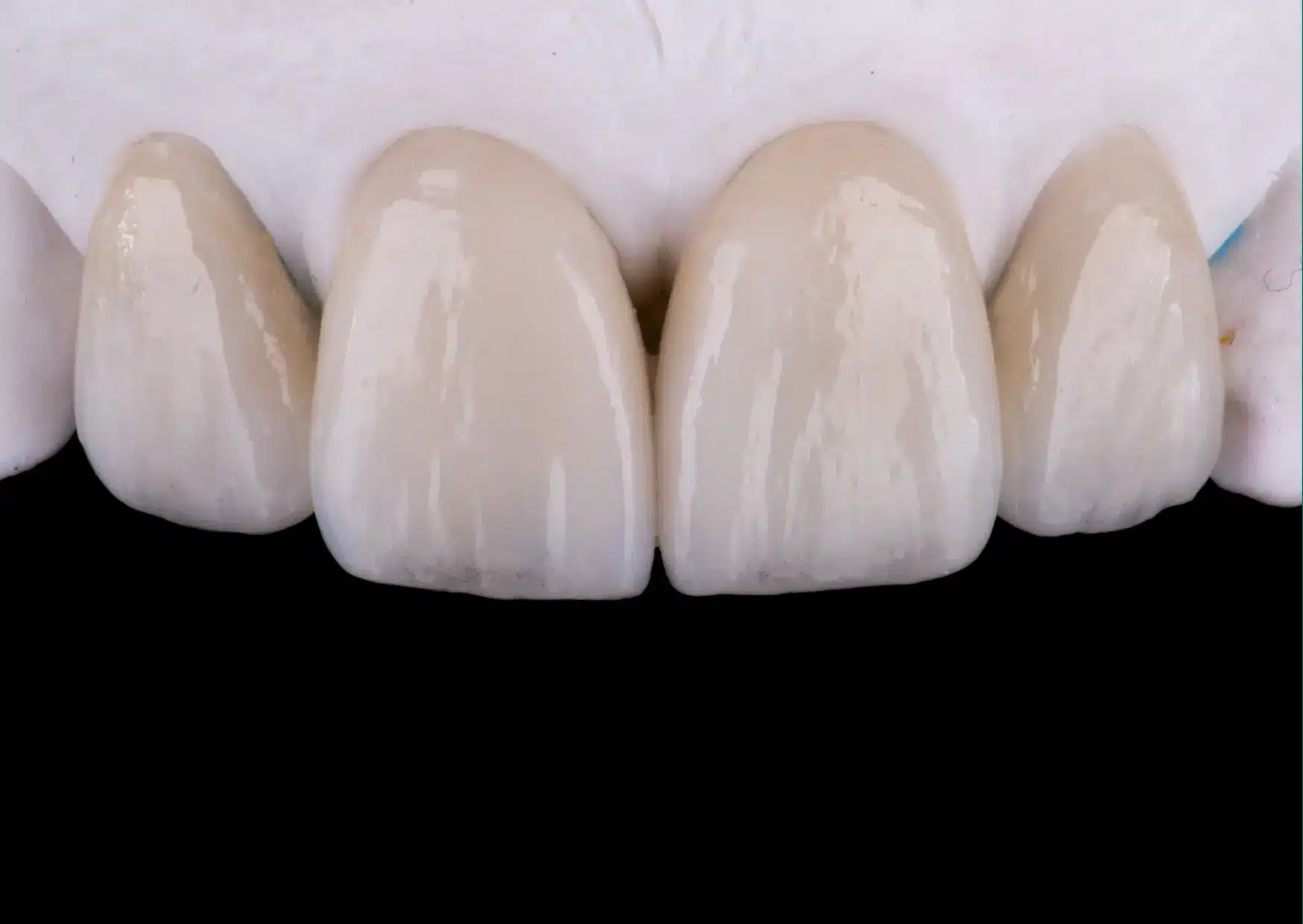Dental Implant Bali Guide | Costs, Process & Travel Tips – Kalm Dental Care
Are you considering dental implants and wondering if Bali is the right destination? Whether you’re seeking high-quality dental care at a fraction of the cost or combining treatment with a tropical getaway, this comprehensive guide to dental implant Bali covers everything you need to make an informed decision.
From understanding the procedure and costs to knowing what to expect during recovery, this guide will walk you through the entire journey with insights tailored specifically for those exploring dental care in Bali.
Why Choose Bali for Dental Implants?
Bali is quickly becoming a trusted hub for dental tourism — especially for procedures like dental implants. Here’s why:
World-class dental clinics equipped with modern technology
Experienced implantologists trained internationally
Affordable pricing, often 50–70% lower than in Australia or the US
English-speaking staff, making communication easy
The chance to recover in a relaxing tropical environment
At Kalm Dental Care, we specialize in restorative dentistry for international and local patients and uphold strict safety and hygiene standards.
What Is a Dental Implant?
A dental implant is a titanium post surgically placed into your jawbone, acting as an artificial tooth root. Once healed, it supports a crown, bridge, or denture.
It’s one of the most effective long-term solutions for:
Missing or damaged teeth
Loose dentures or bridges
Jawbone loss prevention
Improved chewing and speaking
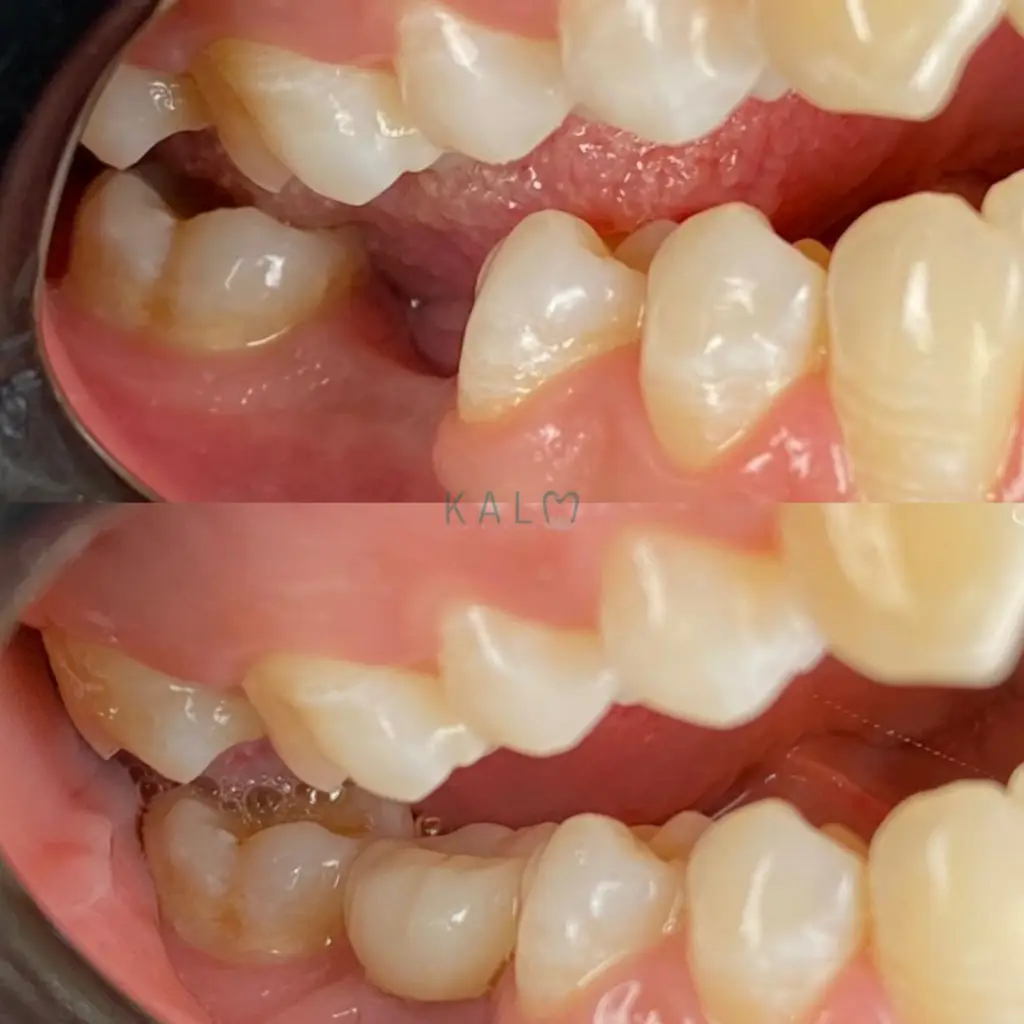
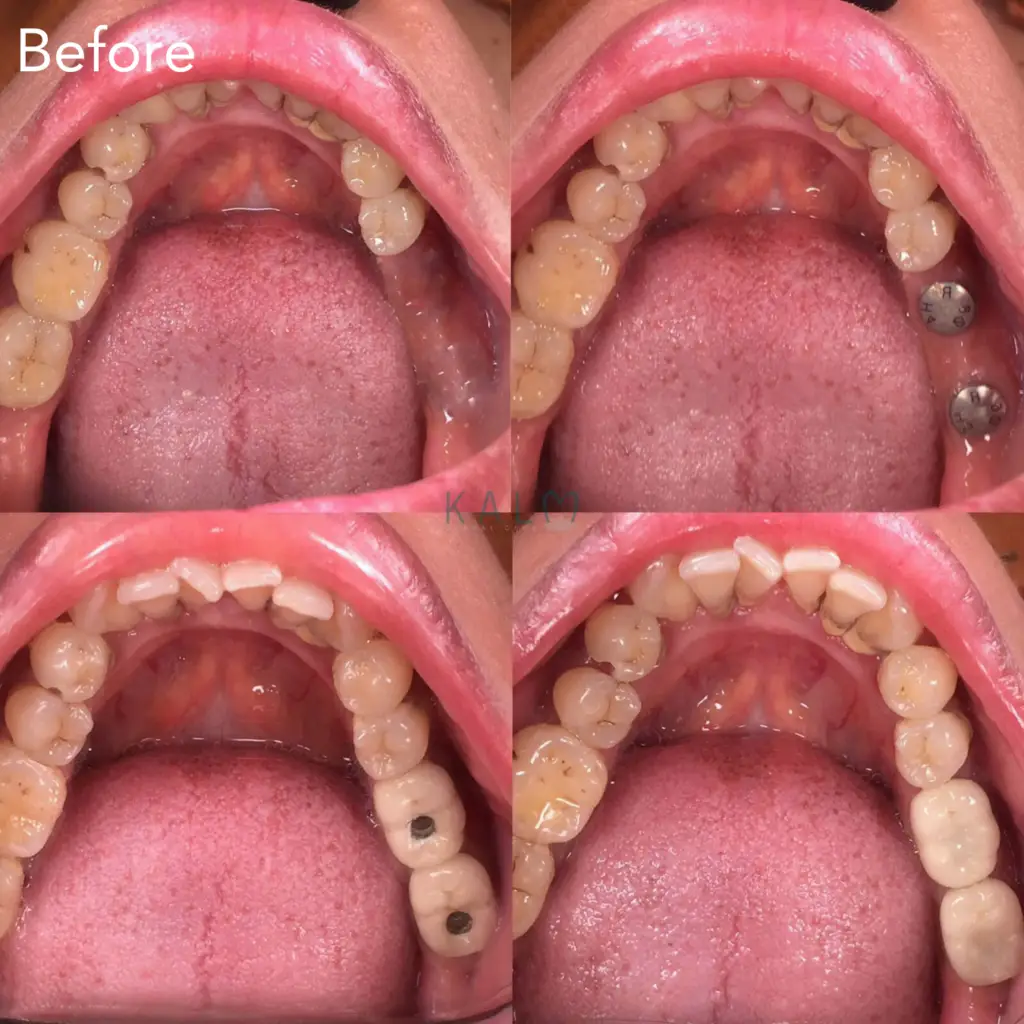
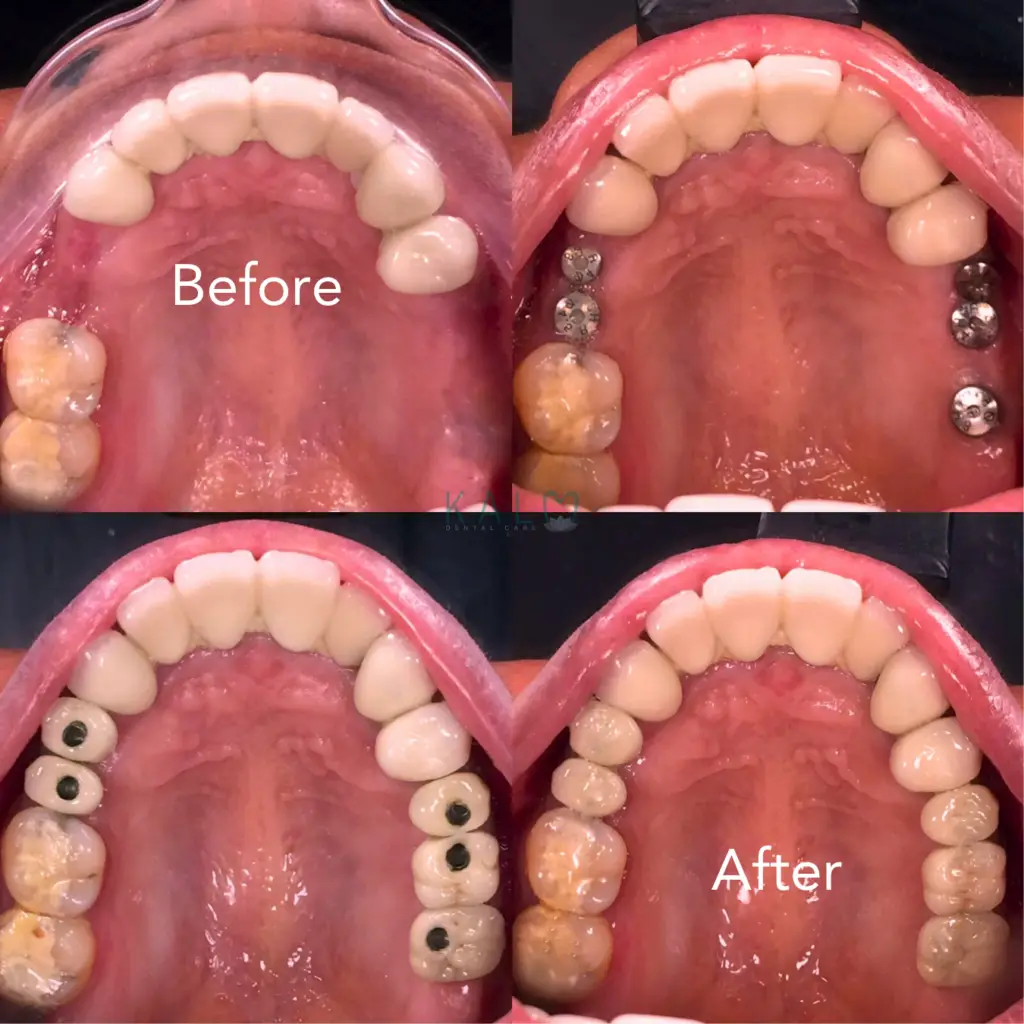
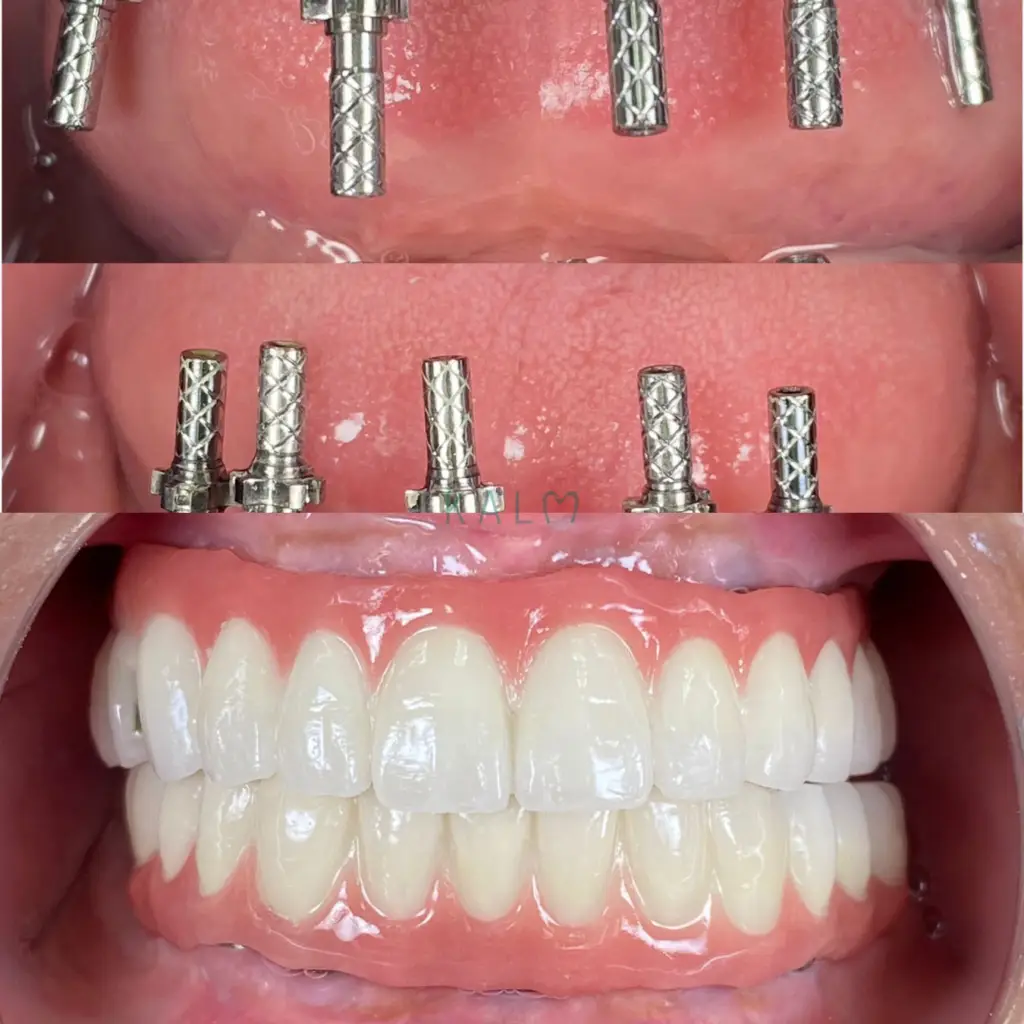
Step-by-Step: Your Dental Implant Journey in Bali
Here’s what your dental implant process will typically look like when you visit Bali:
If You Are, Let’s Take a Look on The Journey to A Renewed Smile.
1. Initial Consultation (In-Person or Virtual)
3D scan and oral exam
Medical and dental history review
Treatment plan and quote
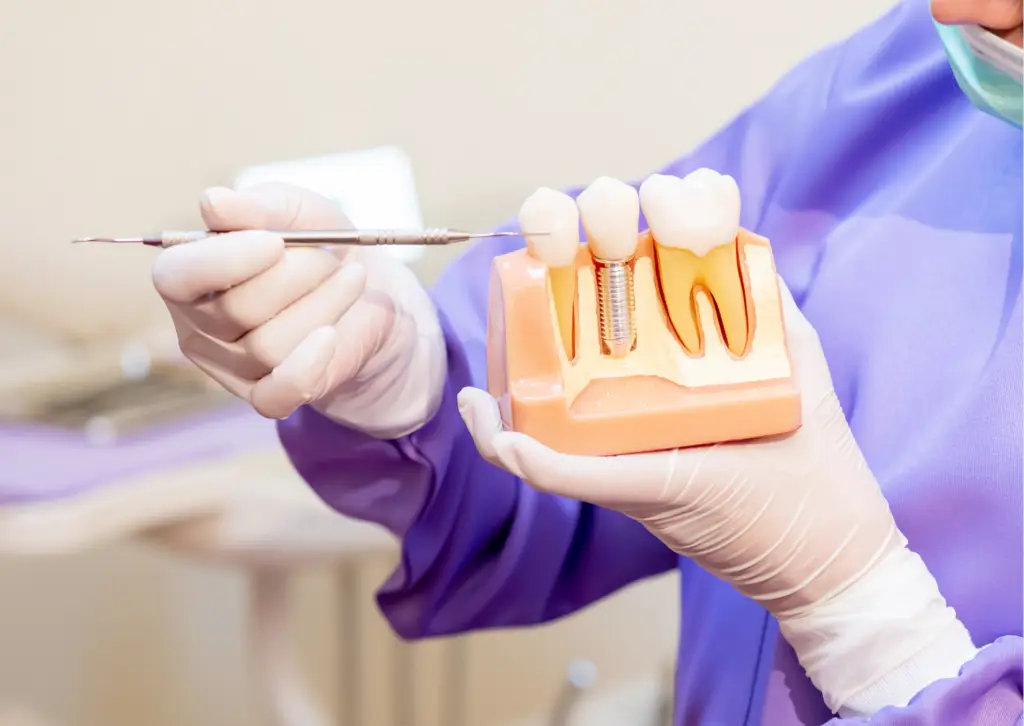
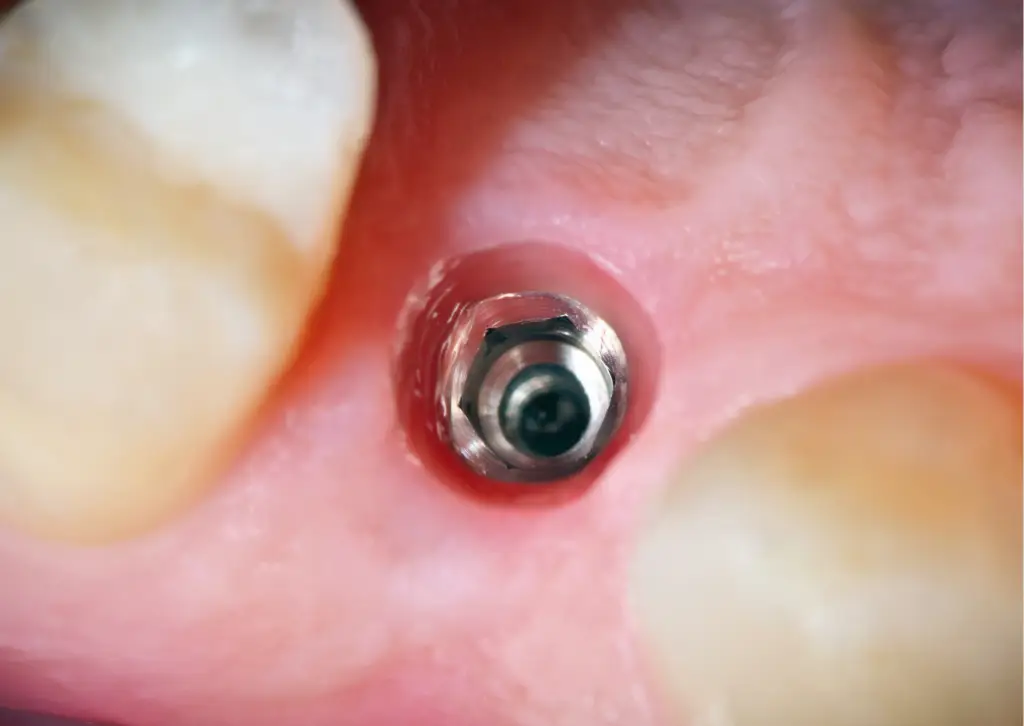
2. Implant Placement
Done under local anesthesia
Takes 1–2 hours per implant
Minimal discomfort with fast healing
3. Healing Period (Osseointegration)
Jawbone integrates with implant (3–6 months)
A temporary tooth may be placed
4. Abutment and Crown Placement
Once healed, the final crown is attached
Looks and functions like a natural tooth
Kalm Dental Care can often coordinate this over two visits spaced a few months apart, with interim checkups if needed.

How Much Do Dental Implants Cost in Bali?
Prices vary depending on the case complexity, materials, and clinic, but here’s a general estimate:
| Item | Estimated Cost (IDR) | Approx. USD |
|---|---|---|
| Consultation & X-Rays | 300,000 – 600,000 | $20–40 |
| Single Implant (incl. surgery & crown) | 10 – 18 million | $650–1,200 |
| Full Arch (All-on-4/6) | 60 – 120 million | $4,000–8,000 |
💡 Tip: Always ask for a written quote before treatment. At Kalm Dental Care, we offer transparent pricing and personalized treatment plans.
Is It Safe to Get Dental Implants in Bali?
Absolutely — if you choose a reputable clinic with experienced professionals and proper sterilization protocols.
At Kalm Dental Care:
We follow international clinical standards
Use high-grade implant systems (e.g., Straumann, Nobel Biocare)
Provide detailed pre-op and post-op instructions
Offer aftercare and remote follow-ups
Combining Dental Treatment With a Bali Holiday
Many patients use their treatment as an opportunity for dental tourism. Here’s how:
Before/After treatment: Enjoy beaches, spa days, and sightseeing
During healing: Relax in quiet locations like Ubud or Sanur
Travel tips:
Avoid hard foods for the first few days
Don’t fly immediately after implant surgery
Take advantage of Bali’s wellness culture for recovery
What Makes Kalm Dental Care Different?
At Kalm Dental Care, we combine:
Gentle, patient-centered care
Premium materials and precise digital planning
Modern design and a relaxing clinical environment
We understand the unique needs of international patients and offer:
Virtual consultations before you arrive
Flexible scheduling to fit your trip
English-speaking team with experience in dental tourism
Book an Appointment
Frequently Asked Questions (FAQs)
Yes, if performed by a qualified dentist in a certified clinic. At Kalm Dental Care, we use international protocols and FDA-approved materials.
It typically takes 3–6 months, with two main visits: one for implant placement, and one for the final crown.
Absolutely. Bali offers affordable, high-quality dental care in a relaxing environment. Many visitors combine dental treatment with a vacation.
Yes, we can provide a detailed quote and treatment plan in advance. If you already have a recent X-ray, feel free to share it with us it will help us determine exactly what needs to be done before your visit.




